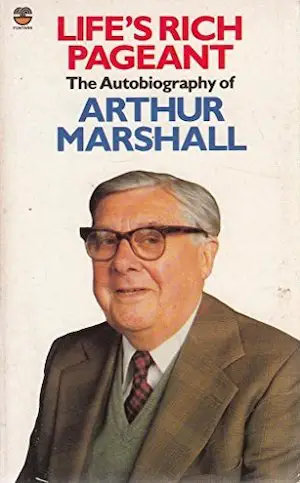A colloquial greeting.
Wotcher
What's the meaning of the word 'Wotcher'?
What's the origin of the word 'Wotcher'?
‘Wotcher’ is so strongly associated with the south of England, and especially London, that it is often assumed to be Cockney Rhyming Slang. Some commentators have attempted to find tortured rhymes for the extended ‘wotcher cock’ slang form – ‘what’s your clock?’, ‘watch your back’ etc. In fact, ‘wotcher’ long pre-dates CRS and is a contraction of the earlier greeting phrase ‘what cheer?’. In that form, it became part of the everyday English language in the early Middle Ages.
‘Cheer’ has been used since at least the 13th century to mean ‘disposition’, especially as it showed itself in the expression on someone’s face. Of course, those who showed plenty of it were said to be ‘of good cheer’ or, as we would now have it, cheerful. From the 17th century onward, people were also sometimes described as ‘cheery’. This perky word has now rather fallen out of favour, despite its frequent use by the late and lamented humourist Arthur Marshall. It was castigated as ‘a ludicrous word’ by none less than Dr. Johnson, which I imagine would cheered Marshall even more.
The full version of the original greeting was ‘what cheer with you?’. This is recorded in the York Mysteries, circa 1440:
“Say Marie doghtir [daughter], what chere with ye?”
Like many words that are very frequently spoken, ‘cheer’ became used as a verb as well as a noun. Shakespeare, amongst others, used the verb form in The Merchant of Venice, 1596:
How cheer’st thou Jessica?
‘What cheer’ is the archetype of the dozens of ‘what’ greetings that have been coined over the years. An early UK example is ‘what-ho’, which began life in the 14th century as ‘what how?’. Geoffrey Chaucer used it in The Miller’s Tale, circa 1386:
What how, what do ye maister Nicholay?
Of course, ‘what-ho’ is best known to us now as the hearty upper-crust exclamatory greeting, cemented into the language by P. G. Wodehouse, as in Right Ho, Jeeves, 1934, for example:
[Gussie Fink-Nottle]: “What-ho, Bertie,” he said. “What-ho, what-ho, what-ho and again what-ho.”
Ho/hoo have been used since the 14th century as exclamations intended to attract attention.
The large number of forms of greeting in the USA is doubtless due to the large number of immigrant communities. The ‘what’ form is particularly flexible there:
What’s new?
What gives?
What’s cooking?
What’s the good word?
What’s up?, Wassup?, Sup?
In the mid-20th century, there was something of a fashion in the US for jocular greetings, in the same vein as the nonsense ‘enthusiasm’ phrases like the bee’s knees, the cat’s pyjamas etc.
Hello Joe, what d’ya know?
What’s buzzin’ cousin?
What’s knittin’, kitten?
What’s steamin’ demon?
What’s tickin’, chicken?
What’s your story, morning glory?
What’s your tale, nightingale?
What’s on the agenda, Brenda?
etc, etc.
These ‘what’ greetings, in common with ‘how do you do?‘, have an interrogative form. In phrasing a greeting as a question the person being addressed is invited to began a conversation. In the USA, the ‘question’ is rheotorical – they don’t really expect you to tell them what is ticking etc. The British have tended to stick to direct ‘how do you do?’, ‘nice weather isn’t it?’ type greetings, which invite a literal reply. Over time, even in Britain, the question mark has become less appropriate as ‘how do you do’ has drifted into being a simple shorthand for ‘hello’. In the 1970s I worked for a time with an American record producer from Queens, New York. His daily ‘what’s new?’ greeting always had me searching for a list of new things, to reply to what I took to be a question – which wasn’t what he intended at all, of course.
Back to ‘wotcher’, and, if it didn’t originate as rhyming slang, how did it become so closely associated with ‘darn sarf’? Step up, Albert Chevalier. Despite his mixed Welsh/French parentage, Chevalier was the archetypal Cockney and a celebrated variety artist, performing under the name of ‘The Singing Costermonger‘. He wrote and performed a catalogue of Cockney songs, many of which are still well known; for example, My old Dutch, and the song now usually called ‘Knocked ’em in the Old Kent Road‘, but which Chevalier performed as Wot Cher!’, 1892:
“Wot cher!” all the neighbours cried,
“Who’re yer goin’ to meet, Bill?
Have yer bought the street, Bill?”
Laugh! I thought I should ’ave died,
Knock’d ’em in the Old Kent Road!
That song is reason the word/phrase came to be thought of as Cockney in origin. It is also the source of the pronunciation of ‘wotcher’ as an exclamation – ‘watch yer’, as opposed to the original query – ‘what cheer?’.
The history of “Wotcher” in printed materials
Trend of wotcher in printed material over time
Browse more Phrases
About the Author

Phrases & Meanings
A-Z
A B C D E F G H I J K L M N O P Q R S T UV W XYZ
Categories
American Animals Australian Bible Body Colour Conflict Death Devil Dogs Emotions Euphemism Family Fashion Food French Horses ‘Jack’ Luck Money Military Music Names Nature Nautical Numbers Politics Religion Shakespeare Stupidity Entertainment Weather Women Work
How did we do?
Have you spotted something that needs updated on this page? We review all feedback we receive to ensure that we provide the most accurate and up to date information on phrases.
